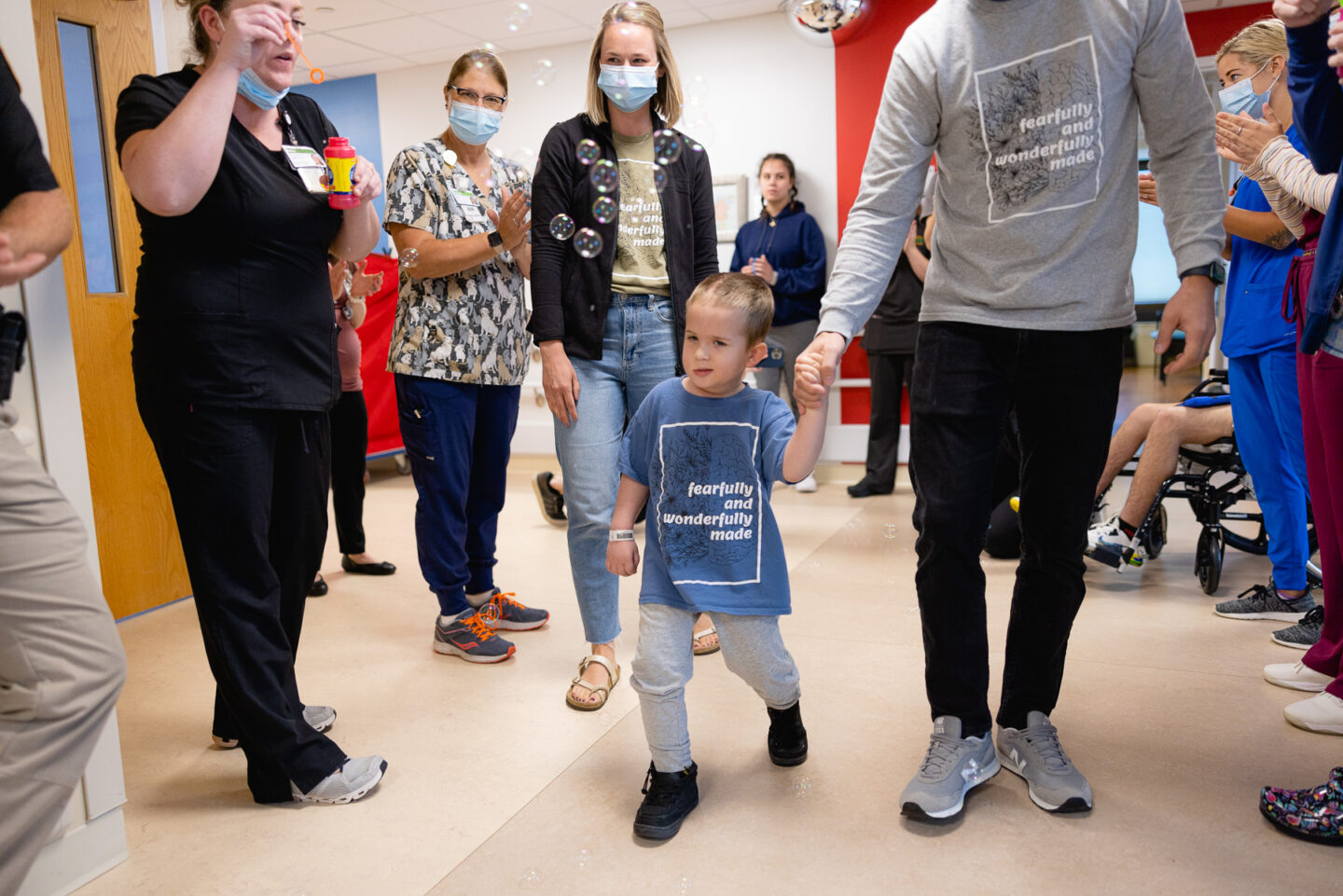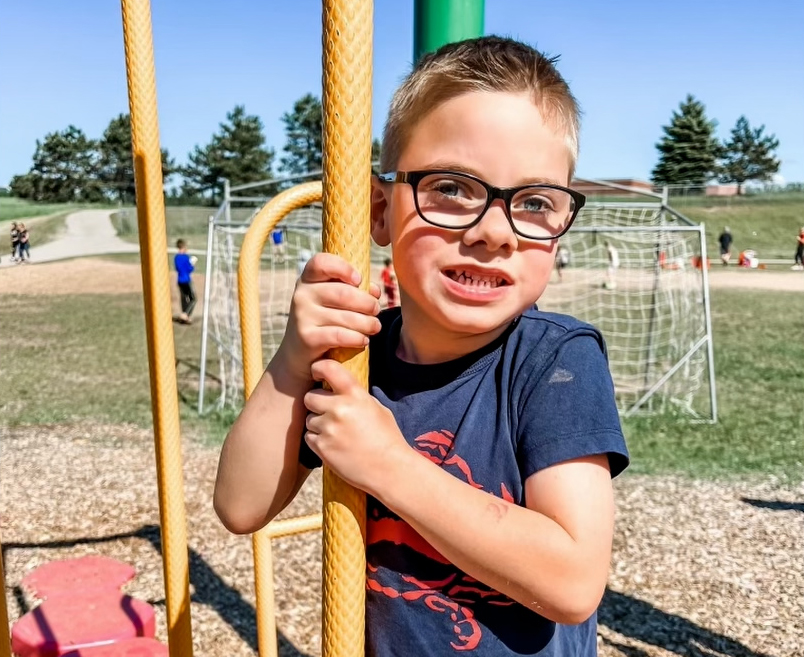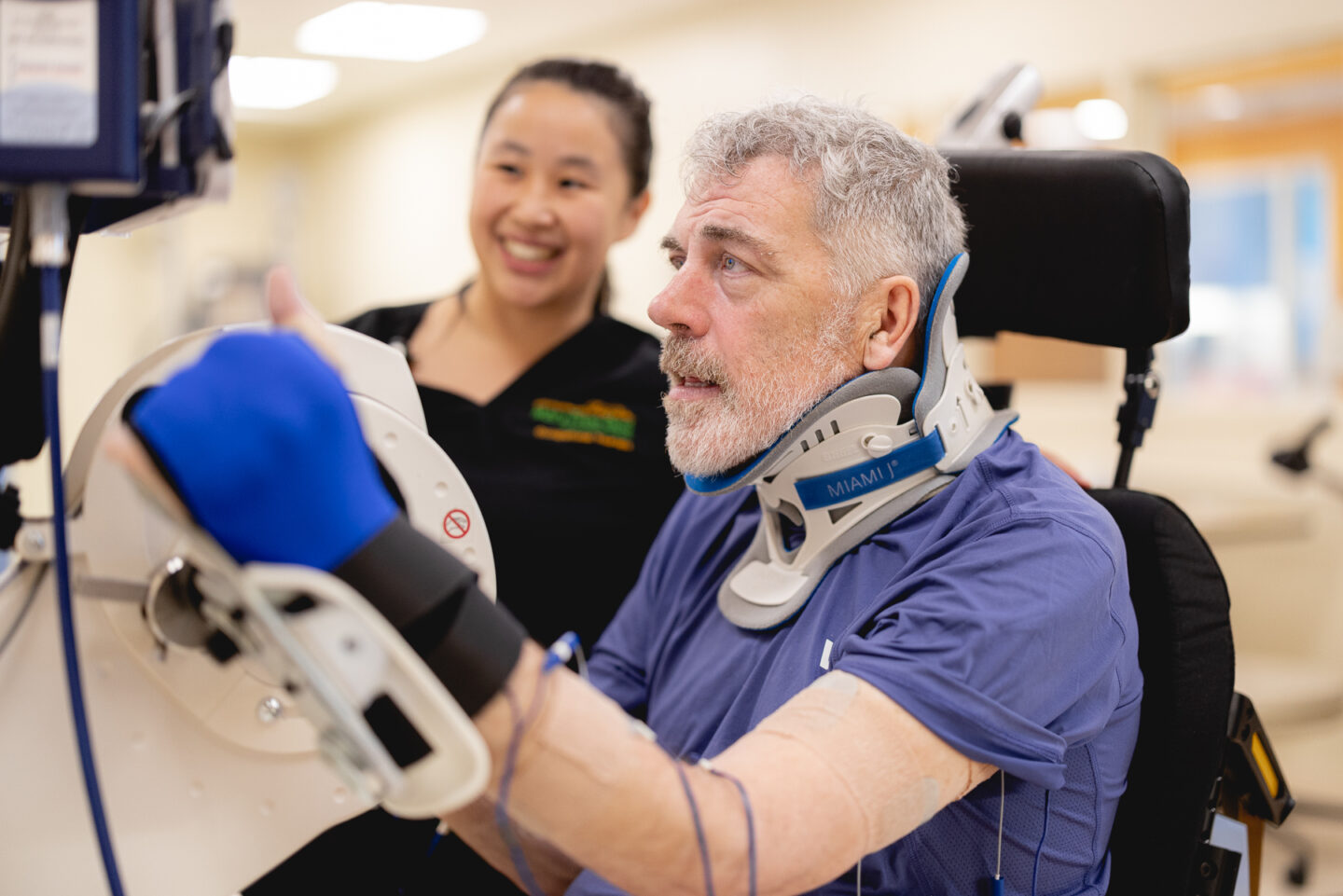Posted on October 25, 2012
A Walking Miracle – And Inspiration For All
At first, the morning of April 10, 2012 appeared to be much like any other for Tammy Gould. Her 10-year-old son, Benjamin, had school in less than an hour, and she had to ensure he was ready for the day. After packing his lunch and preparing breakfast, she walked upstairs to wake him up. But, as she entered his bedroom, she was stunned to find Benjamin lying on his bed unconscious. Frantic for help, she dialed 911. Within minutes, emergency respondents arrived at her home and transported Benjamin to Helen DeVos Children’s Hospital.
For the next few hours, Tammy and her husband, Alex, sat in the waiting room as doctors performed tests on Benjamin, searching for answers.
Their findings were shocking. According to blood test samples, Benjamin had morphine in his system, which had led to hypoxic ischemic encephalopathy, a direct result of a lack of oxygen and blood flow to his brain.
Although doctors were unsure how long he had been unconscious, it was clear that Benjamin’s situation was critical and that his road to recovery would be long and difficult.
But, there was hope.
“The doctors were not able to guarantee that he would make a full recovery, but they felt there was a good chance that his brain would heal since he was young,” Tammy said.
After being comatose for two days, Benjamin suddenly awoke, immediately showing signs that a full recovery was indeed possible. After all, he was able to remember and dictate the events that had transpired in the hours before his loss of consciousness. His revelation was unanticipated. Benjamin had overdosed on two of his father’s back pain medications, Tramadol and morphine extended-release capsules, which are recommended only for adults.
“He took the medications because he wanted to feel better after he had been sick with the stomach flu for a couple of days,” Tammy said. “We never dreamed he would get into his father’s medication.”
Consequently, Benjamin’s fine and motor skills were severely impacted – to the point in which he was unable to dress or feed himself, walk or hold up his head.
Expert rehabilitation was crucial and after receiving recommendations from Benjamin’s doctors, Tammy knew exactly where her son’s recuperation would continue – at Mary Free Bed Rehabilitation Hospital.
For the next 5 weeks, Benjamin received speech, physical and occupational therapies and participated in recreational therapy. The results were almost immediate.
“Mary Free Bed helped him learn to sit up, take care of his own needs and feed himself,” Tammy stated.
Initially, doctors had anticipated Ben would need to receive therapy at the hospital for at least 6 weeks. But, in less than a month, he began to walk again, using leg braces and crutches – a remarkable recovery, considering the fact that he could not even stand up from his wheelchair without assistance when he first arrived at Mary Free Bed.
“The therapists knew when to push him and when to give him the break he needed,” Tammy said. “Benjamin was motivated by the positive reinforcement he received from them.”
Overall, Benjamin’s experience was as positive as one could expect for a fourth-grade student who had to endure so much in such a short period of time.
“The staff was very friendly and encouraging,” Tammy stated. “Alex and I felt included in his recovery process and we were motivated by the progress we saw him make each day.”
Today, Benjamin’s brain is still healing, but he has returned to his previous activities. He is now a fifth-grade student and a Cub Scout, who is passionate about collecting Pokémon cards, playing games on his computer and building towns with Legos®. He also has career aspirations – to eventually work with animals as a veterinarian or zoologist.
As can be expected, Benjamin’s path to recovery is still filled with challenges. Since leaving Mary Free Bed, he has been diagnosed with Attention Deficit Hyperactivity Disorder (ADHD) and cognitive disorder. At times, he also has emotional outbursts, due to his brain damage.
Nevertheless, Benjamin is a walking miracle and an inspiration for all, including for parents whose children are currently enduring the same obstacles.
“Parents must have patience,” Tammy said. “The brain takes time to heal and there will be days where there appears to be no change. But, there is light at the end of the tunnel.”





